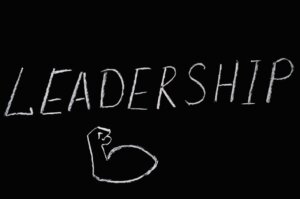Premises that Shape Leadership Story Work
Stories and Story Work
This post is the third in a series about a breakthrough Leadership Coaching approach: Creating your Leadership Story. I have suggested that one of the most powerful ways for leaders to see how you lead, understand the reasons you lead as you do, and make significant improvements in your leadership effectiveness, is through understanding and learning to work with your deep systemic story. In the first two posts, I described the territory of stories and story work, outlined some of the key ideas that underlie the approach, and suggested ways you can begin to see your own story. In this post, I will describe the premises, or working hypotheses, that shape story coaching and mention how these premises can help guide you on your journey.
Premises Underlying Story Work
1. We each have a few core, systemic stories.
Your stories are deeply held, because you have been creating and living them out for a long time. They have identifiable plot lines and character structures, including the roles you tend to play. They are fully systemic in nature. Your core stories are systemic in that they reflect how you have learned to operate, survive, and be successful in systems. They are systemic in that they are about your relationships and interactions with other systems—key individuals, groups, and communities–and with other key forces at play in your life. One colleague suggested that we call them relationship stories.
2. We formed the basic structure of our stories—plot lines, character structure, and roles we tend to play—in the first system of which we were a part.
In that first system, which for most of you was your original family, you learned who you are, how to be, and how to behave in systems. Certainly, over your life you have, by living, embellished and expanded your story. But, you created the core plotline during your early experiences, and that core tends to remain relatively intact unless you do specific work to modify it.
3. Our systemic stories have a significant impact on our behavior in the present, especially as the stakes go up.
Your stories are not just about the past. They are part of who you are, today. (See last weeks post about reframing our model of time.) They form the lenses through which you see and interact with your world. And, the higher the stakes are for you, the more likely your systemic stories are to become engaged and play themselves out in your present day thoughts, feelings, and behavior.
Your stories are always operating to some degree. But, when the stakes are high, you tend to experience their impact much more clearly. Sometimes, in very high stakes situations, you may feel almost compelled to behave in certain ways, even though on some level you know those behaviors won’t get the results you want.
Usually, when you have this kind of experience, your deep systemic story has become fully engaged and is, metaphorically, “telling” you how to behave in order to protect yourself and deal effectively with real or imagined risks in situations you experience as high stakes.
4. Seeing your systemic story, being aware of how it influences your leadership behavior, and learning to work with it, is very high leverage for you as a leader.
You hold your stories very deeply, and you are sometimes so close to them that you can’t see them (like trying to see your own face without a mirror). But your deep stories do not have to be permanently embedded, invisible cages. In fact, they can become sources of energy and growth. You can learn to see your stories and how they both help and constrain you. As Peter Block once said, “The first step in getting out of the cage you are in is to see the cage you are in.”
And, you can learn to reframe your stories, see them anew, and use them as a source of wisdom about living in a complex world. Remember that these are the stories you have told yourself about your experiences, not just things that have happened to you. (See last week’s post about how we create our individual and social reality.) You are not a victim here. If you created the stories, you can change them. It is a learnable skill to see your story and reframe it–see it anew, as a source of grace, strength, forgiveness and wisdom rather than as a source of hurt and constraint. Then. you can modify the parts that hold you back and create a new leadership story that is more aligned with desired results and higher leadership performance.
Where do we go from here?
What you can do:
In earlier posts, I have suggested that you
- Practice observing yourself doing what you are doing, particularly in important, high stakes situations. As David Kantor says, “learn to use 15% of your mind to observe yourself and let the other 85% deal with content.”
- Learn to pay attention to your thoughts, feelings, and behaviors in these situations.
- Then, ask yourself, “What is the story I am telling myself about this situation?” Notice the storyline that tends to emerge
Now, add to the above:
- Ask “is this way of thinking, behaving, and feeling a new experience for me, or have I experienced it before? Most people respond to this question with an answer like, “Oh, I’ve always done that; I’ve always been this way.” If that is your answer, you can be almost certain that you are beginning to see the plotline of your deep story.
Next Post
As I have written these posts, I realize that I have talked mostly about the model, the ideas, and the frameworks we use in story work. I have not provided real examples of people’s stories, how the stories impact them, and how people have learned to see, reframe and change their stories. Providing examples is difficult to do without violating confidentiality, because most of the examples are from people I have worked with. In the next post, I will try to accomplish both—provide a few examples that stay true to the essence of the stories and also preserve confidentiality by fictionalizing the examples so that their sources remain anonymous.
Good journey, and to be continued….
—————————————————————–
If you would like to learn more about story work and/or consider story coaching, feel free to call or email me at:
Steven P. Ober EdD
President: Chrysalis Executive Coaching & Consulting
Partner: Systems Perspectives, LLC
Office: PO Box 278, Oakham, MA 01068
Home: 278 Crocker Nye Rd., Oakham, MA 01068
O: 508.882.1025 M: 978.590.4219
Email: [email protected]
www.ChrysalisCoaching.org http://SystemsPerspectivesLLC.com
Steve is a senior executive coach and consultant. He has developed and successfully uses a powerful approach to leadership coaching, Creating your Leadership Story, which enables leaders to make deep, lasting improvements in their leadership effectives in short periods of time.
 Sections of this topic
Sections of this topic
















